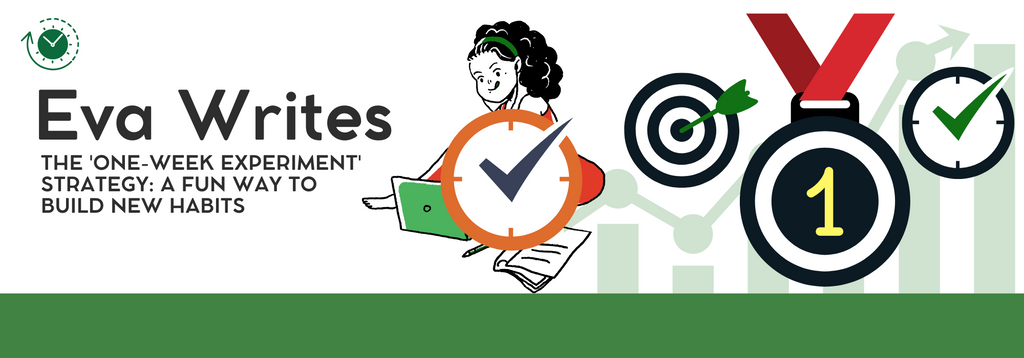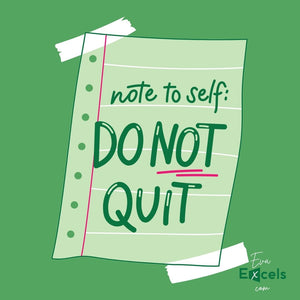The 'One-Week Experiment' Strategy: A Fun Way to Build New Habits

Building new habits can feel overwhelming, but what if you approached it as a short-term experiment instead? The 'One-Week Experiment' strategy simplifies habit formation by encouraging you to test a new behavior for just seven days. This removes the pressure of long-term commitment and makes it easier to stay consistent. In this guide, we’ll explore why this method works, how to implement it effectively, and how tools like habit trackers and spreadsheets can enhance your progress.
Why the 'One-Week Experiment' Works
-
Removes the Pressure of Perfection – Instead of feeling like you need to commit for life, a one-week trial makes the goal feel manageable.
-
Activates Curiosity – Treating new habits as an experiment helps you approach them with a sense of fun and discovery.
-
Boosts Motivation with Quick Wins – Seeing results in just seven days reinforces the habit and encourages continued effort.
-
Encourages Data-Driven Adjustments – Tracking your experience allows you to tweak your approach for better results.
How to Conduct a One-Week Habit Experiment
Step 1: Choose One Simple Habit
Pick a habit that’s easy to implement, such as drinking a glass of water every morning, journaling for five minutes, or tracking your mood daily. The key is to start small and build momentum.
Step 2: Set Clear Rules
Define exactly what your habit entails. For example, instead of saying, “I’ll exercise more,” set a specific goal like “I’ll do five push-ups every morning.”
Step 3: Track Your Progress
Use a habit tracker to record your progress. A simple spreadsheet can help you visualize consistency and identify patterns. Check out The Ultimate Printable Habit Tracker (23 Pages) to make tracking effortless.
Step 4: Reflect on Your Results
At the end of the week, analyze your progress. What worked well? What challenges did you face? Use these insights to adjust your approach or continue the habit for another week.
Step 5: Decide Your Next Move
If the habit was beneficial, consider extending the experiment for another week or integrating it into your routine permanently. If it wasn’t a good fit, pivot and try something new.
Using Excel & Spreadsheets to Enhance Your Experiment
Spreadsheets provide a powerful way to track habits and gain insights. Here are some ways to use them:
-
Daily Checkboxes – Mark off each successful day to stay accountable.
-
Trend Analysis – Identify patterns in habit completion rates.
-
Habit Streak Tracking – Motivate yourself by visualizing your streaks.
-
Data-Driven Adjustments – Make informed changes based on tracked progress.
If you want a done-for-you system, explore our Family Budget Planner (Spreadsheet) for additional productivity tracking features.
Making Habit-Building More Fun with the One-Week Experiment
The key to sustainable habits is making the process enjoyable. Here are some ways to gamify your experiment:
-
Give Yourself a Reward – Treat yourself to a small reward if you complete all seven days.
-
Make It a Challenge – Invite a friend to join and compare progress.
-
Use a Mood Tracker – Monitor how your new habit affects your emotions with our FREE Mood Tracker.
Final Thoughts
The 'One-Week Experiment' strategy offers a simple, low-pressure way to build new habits without feeling overwhelmed. By treating habit formation as a short-term trial, you reduce resistance and make the process enjoyable. Tracking your progress with spreadsheets and habit trackers can enhance accountability and motivation. Whether you decide to continue the habit after one week or pivot to something new, this method keeps self-improvement engaging and sustainable. Ready to experiment? Choose your habit today and start your first seven-day challenge!
-
Posted in
#Focus, #Growth, #Habits, #Motivation, #Success







